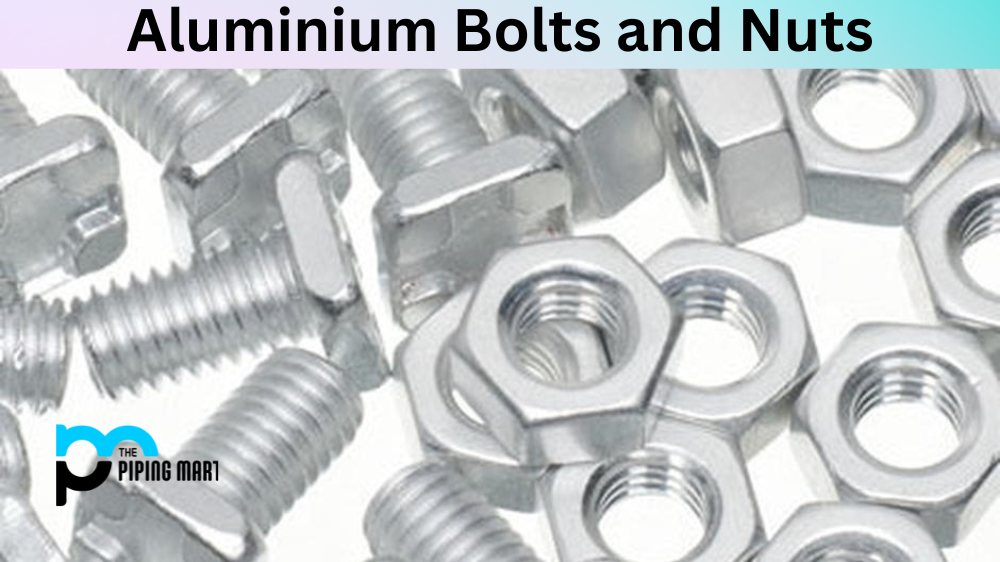Crafting with Hardware and Bolts: Creative DIY Projects
In this world of DIY projects and home improvement, fasteners are often the unsung heroes that hold everything together. https://anotepad.com/notes/bstbwpjq come in various shapes, sizes, and materials, making them versatile components that can be used in countless applications. Whether you're a seasoned builder or just beginning with DIY crafts, understanding the different types of nuts and bolts and their specific uses is crucial for choosing the right fastener for your project.

In this guide, explore everything you need to know about nuts and bolts, from the basics to more specialized types. We'll discuss the most common bolting options available, how to choose between the options, and what makes each type distinct. With insights into their roles in heavy-duty construction, automotive repairs, and home improvement, this comprehensive overview aims to prepare you with the knowledge to confidently tackle projects of any scale. Let’s explore the fascinating world of nuts and bolts and discover how they can enhance your DIY experience.
Understanding Fasteners and Bolts
Fasteners and bolts are fundamental components in the realm of fasteners, serving crucial roles in diverse applications, ranging from construction to automotive repairs. At their base, a fastener is a tube-shaped fastener with a head at one end and threads along the body, designed to be used with a nut. The fastener is a multi-angular or circular piece with an internal thread that engages with the fastener, allowing for secure fastening when secured together. Understanding the types, uses, and details of nuts and bolts is vital for any DIY enthusiast or professional builder.
The variety of fasteners and nuts means they are tailored for specific applications, offering multiple strengths, durability, and resistance to environmental factors. Popular types include hex bolts, transport bolts, and heavy-duty bolts, each suited for varied materials and loads. Likewise, fasteners come in various forms such as regular hex nuts, security fasteners, and wide-based fasteners, each engineered to provide specific advantages based on the construction's requirements. Knowing how to select the suitable type ensures the durability and safety of any project.
Additionally, understanding the materials and finishes used in fasteners and nuts can significantly affect functionality and longevity. Choices such as corrosion-resistant steel, copper alloy, and high-strength metal provide different strengths and corrosion resistance, making them appropriate for specific environments. For instance, stainless steel bolts offer excellent resistance to rust, making them suitable for outdoor use. By picking the appropriate type and material, DIYers can bolster their projects' structural integrity and ensure lasting outcomes.
Components and Finishes
When choosing nuts and bolts for your tasks, the substance they are made from plays a crucial role in their functionality and longevity. Steel is the most common material used, known for its durability and affordability. It comes in different grades, with mild steel being popular for typical applications while alloy steel is preferred for heavy-duty requirements. Bolts and Nuts Store and aluinium are also used, offering benefits like corrosion resistance and low weight, making them suitable for specific applications in automotive and aerospace sectors.
Coatings significantly enhance the performance of nuts and screws, particularly in outdoor environments where contact to moisture can lead to rusting. Zinc plating provides a shielding layer that stops rust, while coated fasteners provide even enhanced protection because of their thicker zinc coating. Other options include powder coating and anodized finishes, which can add a aesthetic finish while providing additional resistance to abrasion and rust, rendering them suitable for decorative uses in home improvement projects.
Grasping the differences between coatings is essential for ensuring lasting quality and reliability. For example, corrosion-resistant bolts may be justifiable the investment due to their inherent corrosion resistance, making them ideal for use in demanding environments. In contrast, if budget constraints exist, choosing zinc-coated bolts can provide sufficient protection for less demanding applications. Choosing the right material and finish is essential for ensuring the effectiveness of your do-it-yourself tasks.
Purchasing Manuals and Comparisons
When selecting fasteners and hardware for your project, it is essential to consider the specific requirements based on the use. Factors such as strength, conditions of use, and compatibility of materials play important roles. For example, if you're working on an exterior task, choosing for rust-resistant substances like steel alloy or galvanized fasteners is advisable. Knowing whether the hardware are going to be used for wood or steel uses will also guide your selection to ensure best performance.
Accurately measuring fasteners and bolts correctly is vital to ensure a good fit. Use measuring tools or a tape measure to measure the size, length, and thread count. When evaluating different choices, always refer to a fastener strength comparison chart that details the tensile strength and yield strength of various types. This helps in identifying the most suitable option that aligns with your task's requirements and safety regulations.
For a more educated buying decision, getting acquainted yourself with the language used in fasteners is advantageous. A comprehensive dictionary of fasteners and hardware can help you in grasping the differences between various types. Additionally, think about whether you need specialty hardware for unique uses. By being knowledgeable about the variations between metric and standard hardware and understanding what to look for in high-quality items, you can make a sound decision that ensures the success of your DIY endeavors.